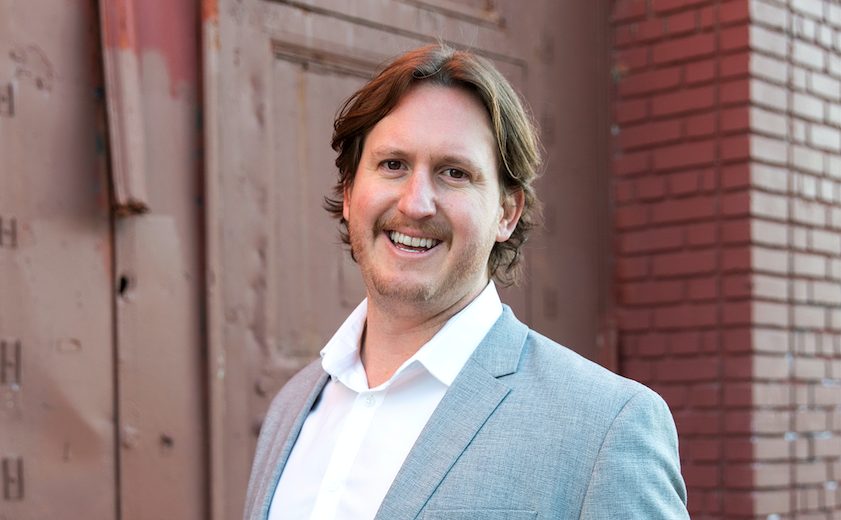Q&A with Foresight’s David Fontain
Foresight is a workers compensation insurtech working with brokers to bring safety and insurance savings for blue-collar industries. We had the chance to ask David Fontain (CEO & Founder) a few questions.

Tell us about yourself
I’m an Australian ex-pat. I moved to the US in 2015 after graduating from a tech incubator.
Early on, I worked in investment banking and went on to become a serial entrepreneur, starting a number of product and technology startups — some successful, some not so much.
I got my first taste of insurance over two decades ago when I was working in finance selling personal lines and income protection to high net worth individuals. I’ve always been captivated by insurance and how it facilitates business.
Tell us about your company
Foresight Risk and Insurance Services is a workers compensation insurtech focused on middle-market businesses. Mid-market companies typically partner with brokers because they are too complex for insurtech platforms geared toward small businesses, so our coverage is available through our appointed broker network.
At Foresight, our goal is to tie safety engagement directly to insurance savings for blue-collar industries. Similar to safe driver auto insurance incentives, proactive businesses can access a reduction in premium within just one policy term.
Foresight underwrites workers compensation (with builders risk, contractors equipment, and motor truck cargo available as add-ons) in Texas, California, Nevada, Arkansas, Arizona, Oklahoma, Louisiana, and New Mexico.
Talk to us about the connection between Safesite and Foresight
Foresight is a commercial insurance provider and Safesite is Foresight’s exclusive technology-enabled risk management platform. For privacy purposes, sensitive risk management data that the insured enters into Safesite is not shared with Foresight, providing the insured with peace of mind when using the Safesite technology.
What went according to plan and what didn’t when you launched the company?
Building a great business is a marathon, not a sprint (in most cases) and launching a new insurance program in one of the most highly regulated markets around was certainly tough.
There were many obstacles we had to overcome to launch Foresight. Several promising partnerships either fell through at the last moment or didn’t deliver the promised value.
For a heavily regulated line like workers compensation, you have to have loads of conviction and an incredible value proposition to make it work. Most carriers interested in workers comp began underwriting it decades ago, making it near impossible to avoid channel conflict.
Building our incredible team did go according to plan, and our first six months went even better than I anticipated.
What are some trends happening in the sector you are after insurers should be aware of?
We’re among those leading the charge in safety technology transformation. With the application of machine learning and IoT devices, there is so much happening to modernize programs that have been paper and spreadsheet-based for decades. In addition, most companies now understand that safety compliance is just a starting point. Safety tech will help companies see how well their programs are implemented and beyond that, provide early indicators of heightened risk or poor safety culture.
Insurers should also understand how project planning and management technologies are helping blue-collar businesses and farms achieve their safety and profitability goals. Insurers should also stay on top of distribution trends, as more manufacturers and farms are now critical producers in e-commerce supply chains.
What excites you about Foresight’s opportunity?
The massive impact we’ll have. Until now, bringing the insurtech model to the middle market has been considered too much of a challenge. We’re excited by those challenges. Foresight is positioned to improve every business we underwrite by driving down incidents, improving working environments, and bettering the quality of life of workers and their families.
You are after a very specific client profile. How are you tackling this from a distribution standpoint?
Right, we have a strong appetite for construction and trades, agriculture, manufacturing, and light industrial. Because we’re uniquely equipped to add value through risk management, we partner with best-in-class commercial agents. Many of our broker partners have specialized in one vertical, know it inside and out, and know which of their clients will benefit from our safety-driven pricing model.
What are your biggest challenges?
Right now, our challenges are associated with being a new, innovative product in an industry that has not evolved in decades. Some of our brokers have had insureds with the same incumbent for many years, and they are used to doing business one way, even if it’s not the most efficient or cost-effective.
What does success look like for you?
For Foresight, success looks like having a meaningful impact on policyholder incident rates and premiums. We’re already experiencing success on a small scale as insureds adopt and benefit from our risk management platform. Now we want that to expand to such an extent that entire communities are impacted and business stakeholders associate our brand with safety and savings.
What would you do if you weren’t in insurance?
I wish you would have said “in workers comp” instead of insurance as a whole. I can’t imagine being in any other industry. There is just so much opportunity for innovation and such great talent out there. It’s empowering!
What advice would you give to new founders?
Work hard but look after yourself and your well-being. Bringing a great idea to market and scaling a business to success can be a longer journey than you think.
How did you celebrate your recent funding?
My wife and I cracked a really nice bottle of wine we bought at a vineyard we love in Paso Robles. And my co-founder Peter Grant and I bought each other new apple computers and got to work on launching our workers compensation program.
If WFH became permanent and you could choose any place in the world, where would it be?
WFH is permanent for us. We’re a fully remote company with employees based around the globe.
Living in San Francisco is great, especially when you consider the surrounding areas like Marin, Sonoma, and Napa. Part of me will always call this place home; however, I grew up by the beach back in Australia and love the idea of bringing up a family someplace warm.
If you had to eat the same thing every day, what would it be?
That’s another tough one. Food’s one of my interests in life, so it’s like asking me to choose my favorite sibling. A few meals that have stuck with me over the years are the Truffle Gnocci at Nomad, Las Vegas, or if it’s crab season, the curried crab at NoPa SF.
What are some of your favorite quotes?
“You can only fail better if you learn from failures. And then failing is something that prompts you to move ahead.” — Pearl Zhu
“Remember, upon the conduct of each depends the fate of all.” — Alexander the Great
Looks like you have great hair. What’s your secret?
Haha, thanks! I think jumping in the ocean every so often helps.




